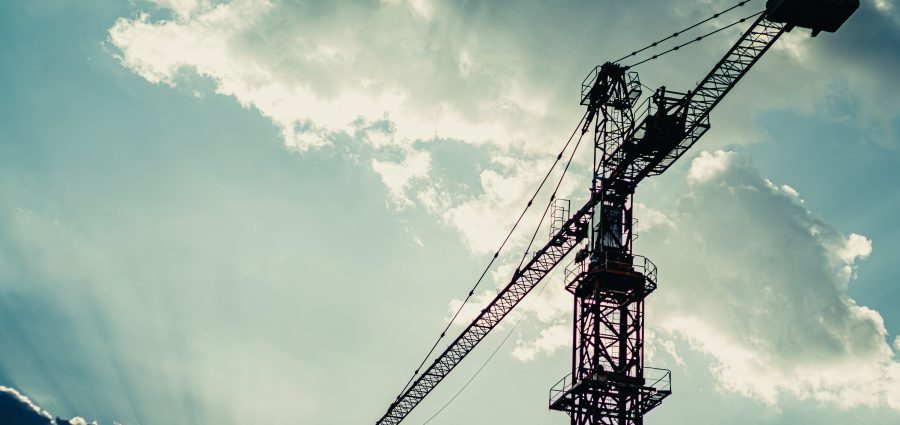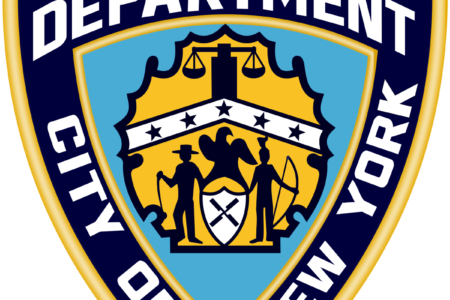The New York City Department of Buildings today marked the official passage of major legislation in the City Council to update the city’s Construction Codes. This comprehensive revision to the Codes contains over 600 major updates, and thousands of smaller changes, intended to improve safety for our fellow New Yorkers, and incorporate the latest in building technologies. The new Codes use the highest international standards for the design, construction and maintenance of buildings as a baseline, while continuing our city’s proud tradition of implementing additional enhancements to ensure we have among the strongest building regulations anywhere in the world.
“These updated Codes provide a solid foundation on which the future of our city will be built,” said Buildings Commissioner Melanie E. La Rocca. “I want to thank my colleagues at DOB, along with the hundreds of government and industry experts that volunteered their time on our Code Revision Committees, who worked tirelessly to advance these Codes. Those efforts will make our built environment safer for everyone living, working and visiting in our great city. Looking further afield, it is my hope that these Codes will also serve as a model for other cities, looking to build their own more resilient and sustainable future.”
New York City’s Building Code is one of the nation’s earliest and most comprehensive set of rules regarding construction in both new and existing buildings. Updated regularly, our Codes set a strong framework for how buildings are designed and maintained in our unique urban environment. The code revisions approved today are the first holistic update to the entire set of NYC Administrative, Plumbing, Building, Mechanical and Fuel Gas Codes since 2014. The revisions were drafted by technical committees comprised of engineers, architects, attorneys, planners, tradespeople, representatives of the construction industry, labor, real estate industry, utility companies, as well as DOB and interagency stakeholders. Regulations in our Codes here in New York City frequently inform model codes on the national and international levels.
Revision highlights included in the updated Codes:
Emergency Response Enhancements
- Increases the minimum required dimensions of the elevator emergency hatch.
- Permits the use of batteries as the required secondary power source for the FDNY endorsed Auxiliary Radio Communication System (ARCS).
- Expands number of high-rise residential buildings that require emergency voice communication systems.
Fire Protection Enhancements
- Mandates that whenever exits discharge directly outside and not through a protected area or vestibule, that FDNY access be provided to the exit stairway either from the protected area or within a minimum distance of it.
Vertical Transportation and Accessibility Enhancements
- Establishes clear compliance criteria for elevator systems to ensure greater accessibility and usability for building occupants with physical and intellectual/developmental disabilities.
- Requires door locking monitoring in all Limited Use/Limited Application lifts (LULA) in order to minimize the risk of people and objects becoming caught.
Elevator and Boiler Safety Enhancements
- Requires the same elevator-in-readiness to serve all floors to reduce building evacuation times in the event of an emergency.
- Amends inspection timeframes for elevators and boilers to bring them back into service faster.
Protecting Tenants, Streamlining Building Occupancy and Promoting Increased Affordable Housing
- Requires new special inspection of buildings undergoing construction to ensure the protection of tenants.
- Clarifies what construction documentation is required to receive a new Certificate of Occupancy (CO).
- Reduces the required 8ft basement clearance height for two-family homes to 7ft to increase affordable housing opportunities.
Construction Safety Enhancements
- Permits the use of netting, low barriers, and chain link fencing in lieu of requiring only solid fencing that creates blind tunnels for pedestrians.
- Creates a new license type for advanced crane technology, such as articulating boom cranes and roto-telehandlers, to ensure these cranes are operated in a safe manner.
- Improves the safety and consistency of the underpinning of existing buildings.
Building System Construction and Inspection Enhancements
- Requires smoke tests for special gas vents to ensure the safety of building occupants.
- Requires all pipes, tubings, and fittings in the mechanical system to comply with the applicable reference safety standard.
- Codifies maintenance, condition assessment, and reporting requirements for parking structures.
Sustainability and Resiliency Enhancements
- Expands the applicability of flood zone requirements of the 100-year flood hazard area to all critical facilities (including fire, rescue, ambulance, police stations, and designated emergency shelters) located in the 500-year flood zone.
- Mandates annual visual inspections of dry floodproofing systems and triennial full-scale deployment of dry floodproofing in the presence of a special inspection agency.
- Permits and supports the use of alternative energy production processes, including hydrogen fuel cells.
- Increases the material choices available to builders by expanding the use of sustainable building materials such as cross-laminated timber and structural composite lumber.
Code requirements set forth in this updated revision will go into effect next year, with some regulations taking effect on January 01, 2022. To support the implementation of the code updates, DOB will be conducting training and outreach regarding the new requirements.
“The updated codes approved by the City Council are a product of outstanding work by FDNY members in our Bureau of Fire Prevention and their colleagues at the Department of Buildings,” said Fire Commissioner Daniel A. Nigro. “Thanks to their collaboration and expertise, we will see greater improvements to the city’s fire protection, emergency response, and construction regulations, helping to ensure the safety of all New Yorkers and our members who respond to thousands of emergencies each day.”
“New York City has a proud tradition of enforcing the nation’s most rigorous building and housing codes that are a large part of why we are one of the nation’s safest big cities,” said HPD Commissioner Louise Carroll. “The advances put in place today will enhance protections for tenants and workers for generations to come, as well as, create a more resilient and sustainable future. I want to thank DOB for its leadership, HPD’s development and enforcement teams, along with our industry partners for laying the foundation for the city to tackle the next generation of challenges.”
“We applaud the passage of these important updates to the City’s Construction Code, led by our colleagues at the Department of Buildings with input from a diverse set of experts from industry, academia and government,” said DEP Commissioner Vincent Sapienza. “Important updates to the Plumbing Code, Green Infrastructure protections and construction protocols are amongst the revisions that will improve safety and the quality of life for all New Yorkers.”
“The code revisions spearheaded by the Department of Buildings will ensure that new construction projects can deal with 21st-century infrastructure challenges,” said NYCHA Chair & CEO Greg Russ. “We are honored to have been a part of this process and look forward to seeing these new standards implemented citywide.”
“These are sensible proposals that will support the construction industry while protecting workers and the public,” said NYC Department of Design and Construction Commissioner Jamie Torres-Springer. “DDC professionals with vast experience in City construction helped guide many of these new regulations and as one of the many stakeholders who will benefit from safer conditions we applaud the Council’s actions today.”
“As the Chair of the Accessibility Technical Committee for the New York City Building Code, I am proud to have been part of the NYC Building Code updates,” said Victor Calise, Commissioner of the Mayor’s Office for People with Disabilities. “I am confident that these updates, which address accessibility, will be the next step in making certain that the needs of people with disabilities will be further met as we all take steps in reaching our goal of making NYC the most accessible city in the world. I want to thank the Committee members for their hard work, and look forward to continuing to work with DOB “
“The School Construction Authority continues to be in lockstep with these Building Code revisions that improve standards to keep our workers and the general public safe,” said SCA President and CEO Nina Kubota. “We are also adding vital sustainability and resiliency enhancements that will protect our schools, our kids, and school staff from extreme weather events while reducing our carbon footprint.”
“These Code revisions will further strengthen New York City’s buildings against flooding and worsening extreme weather,” said Jainey Bavishi, Director of the Mayor’s Office of Resiliency. “Increasing inspections for dry floodproofing measures is a common-sense step that will ensure these systems remain in a state of good repair. These revisions will also require an increased number of critical facilities to install and maintain flood protections. This will help keep them online and ready to serve the public when the next disaster strikes.”
“The future of our built environment is essential to decarbonize the city and improve the lives of New Yorkers,” said Ben Furnas, Director of the Mayor’s Office of Climate and Sustainability. “We applaud the Department of Buildings and the City Council for this thoughtful update to the construction codes that will advance the safety, affordability, and sustainability of our buildings, and act as a model for cities around the world.”
“Today’s vote to revise the City’s construction codes represents a great achievement for our industry, which will ensure that current and future projects adhere to the strongest international building and design standards,” said James Starace, Chief Engineer of the Port Authority of New York and New Jersey. “It takes a unified vision and collaborative effort to enact something as important as this, and we are proud to have served as a partner on such a bold initiative.”
“The bill we passed today, Int. No. 2261-A, which I sponsored, includes 7,400 revisions to the Construction Codes, 600 of which represent new or expanded requirements. I want to thank the Department of Buildings for organizing committees updating the codes, and effort including architects, engineers, attorneys, representatives of construction, labor, real estate, other city agencies, and stakeholder organizations. Together, members of these committees volunteered over 40,000 hours of service towards the revision of the Code. These revisions will help preserve the safety of the City’s built environment. I am proud that we live in a city full of dedicated public servants and advocates who work together for the well-being of all New Yorkers,” said Council Member Robert E. Cornegy, Jr.
“New York City should always strive to create an environment that is safe and welcoming to all – that includes ensuring our building code reflects the wide variety of challenges New Yorkers face individually and collectively. Department of Buildings’ updates to local regulations enhance accessibility, emergency preparedness, public safety, and resiliency measures. I am pleased that our City is moving in the right direction with these policy changes,” said Councilwoman Carlina Rivera.
“I congratulate Commissioner LaRocca, the DOB and all those who worked on these much-needed reforms. New York must continue to be innovative as we bolster safety and resiliency and push past the pandemic into a bright future,“ said Council Member Robert Holden.
“I would like to congratulate Commissioner Melanie La Rocca and her Code Development Team on the passage of today’s historic legislation which updates the NYC Construction Codes. The International Code Council (ICC) is honored by our long standing partnership with the City of New York, serving as a national and international leader on its continuous code updates as well as their active participation in the ICC code development process” said Dorothy Mazzarella, Vice President of Government Relations, International Code Council.
“Today marks a milestone as the City Council passes legislation to update the Construction Codes. This legislation is the culmination of an intense, thorough collaborative process between the Council, the Department of Buildings, and stakeholders. These revised Codes reflect best practices for safety, sustainability, and technical advancements in the built environment. ACEC New York acknowledges and applauds the Council and DOB, and the 110+ members of our association who contributed expertise and time to get us to this day by serving on the DOB’s technical, advisory and managing committees. We look forward to continuing the engineering industry’s strong partnership with DOB,” said John Evers, President & CEO, American Council of Engineering Companies of New York (ACEC New York)”.
“As a member of the code revision committee, I know firsthand, the effort that went in updating the NYC Construction Codes. The New York State Society of Professional Engineers commends and supports all the work that was done by the people at the NYC DOB as well as the industry volunteers,” Joseph A. Pasaturo PE, President of the New York State Society of Professional Engineers.
“National Elevator Industry, Inc. (NEII) is pleased that the NY City Council has passed this important safety measure. The time is always right to prioritize the safety of the riding public and the service technicians who keep them moving every day on conveyances throughout New York City. NEII promotes consistent adoption and enforcement of the latest safety policies, codes, and regulations for the building transportation industry and passing this code update is another important step forward to keep New Yorkers safe.” said Amy Blankenbiller, Executive Director of NEII.
“The Master Plumbers Council of the City of New York appreciates that we were part of the Building Code discussion and supports the passage of this Bill with the understanding that some remaining issues may be dealt with before the end of the year. Passage now allows the DOB to craft necessary regulations in a timely fashion,” said Richard Bonelli, President, Master Plumbers Council.
“As a part of the revision process, the Plumbing Foundation commends the Department, industry stakeholders, and experts who worked diligently together during this comprehensive operation to update the Building Code” said April McIver, Executive Director of the Plumbing Foundation City of New York, Inc. “As Commissioner La Rocca has stated, updated Codes provide a solid foundation and we believe this is an important step toward having the most advanced and contemporary Codes for our unique and second-to-none City. However, there are some issues that must be addressed before the Code can go into effect. We look forward to continuing working with the Department and policymakers on these matters over the coming months to ensure it is modern, safe, and practical for residents and contractors alike.”
“The Special Riggers Association applauds DOB Commissioner La Rocca, Councilmembers Cornegy and Brannan and the Building Code Revision Team members for updating the building code to enhance construction safety and take steps to address climate hazards that affect our infrastructure and our shorelines,” said Veronika Sikorski, President of the NYCSRA. “As the voice of the façade restoration industry, we will continue to work closely with DOB and the Council to promote new safety and sustainability measures such as the ones passed today.”
“As NYC’s leading site safety management and training provider organization, CSAC commends Commissioner La Rocca, DOB, Council Chairs Robert Cornegy and Justin Brannan, and all of the stakeholders for their hard work and foresight to develop new ways to make our industry safer while implementing new sustainability measures,” said James Bifulco, President of the Construction Safety Advisory Committee of New York. “This legislation is the product of an extensive collaborative effort by all the industry stakeholders, including CSAC’s leadership through the Building Code Committee update process and the City Council, and will undoubtedly save lives both on and around our job sites, and protect our environment for future generations. This has been a model on how to achieve inclusive, effective and meaningful change.”
“I am very proud to have participated in all three Code efforts that have ended un being adopted by NYC utilizing the ICC Codes as a basis. This latest revision further enhances and builds upon the 2014 NYC Code and has truly been a Consensus effort. Thank you to all participants for your efforts over the last 4 + years,” said Christopher O. McHugh, PE., Vice Chair of the Mechanical, HVAC & Boilers Technical Committee.
.









